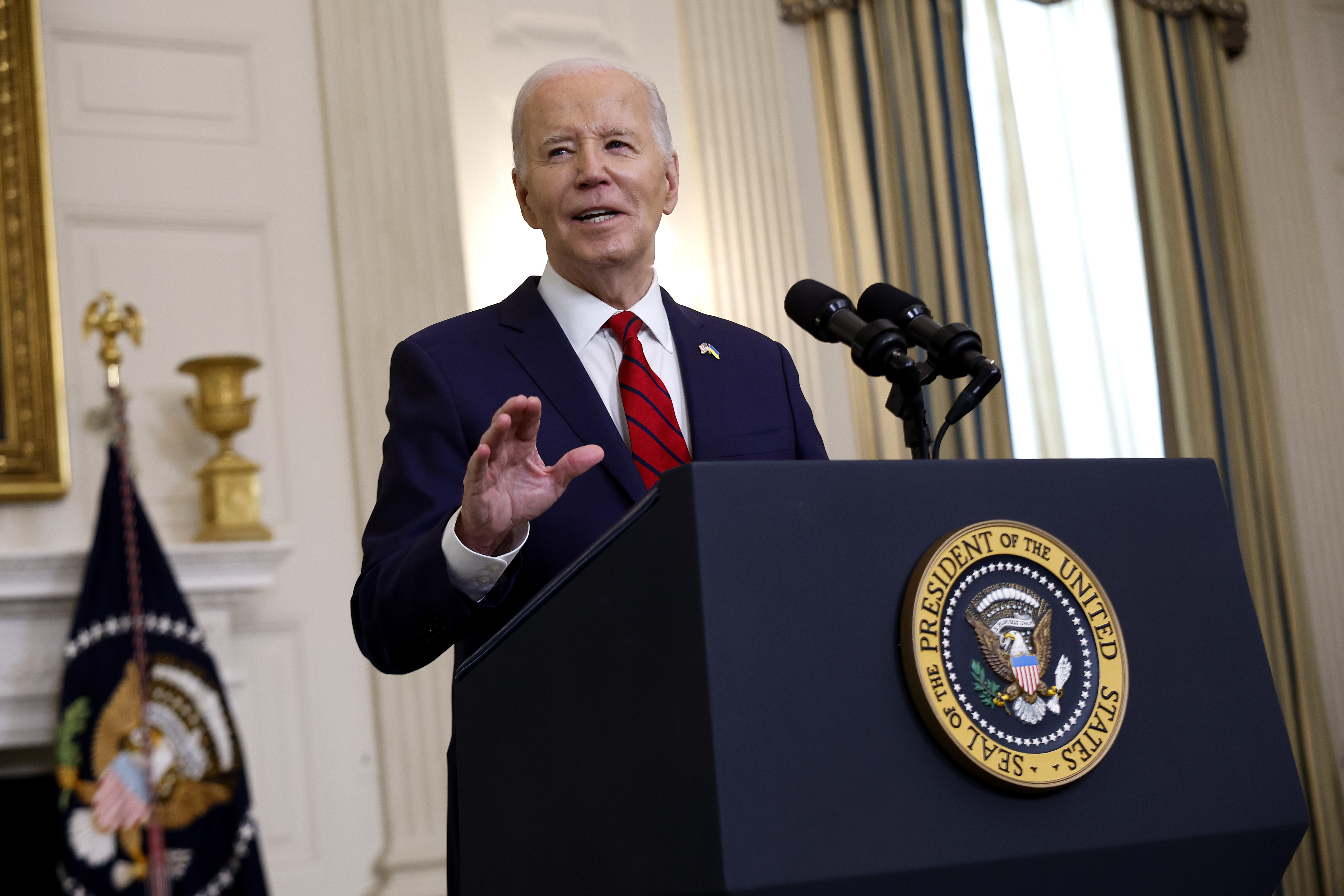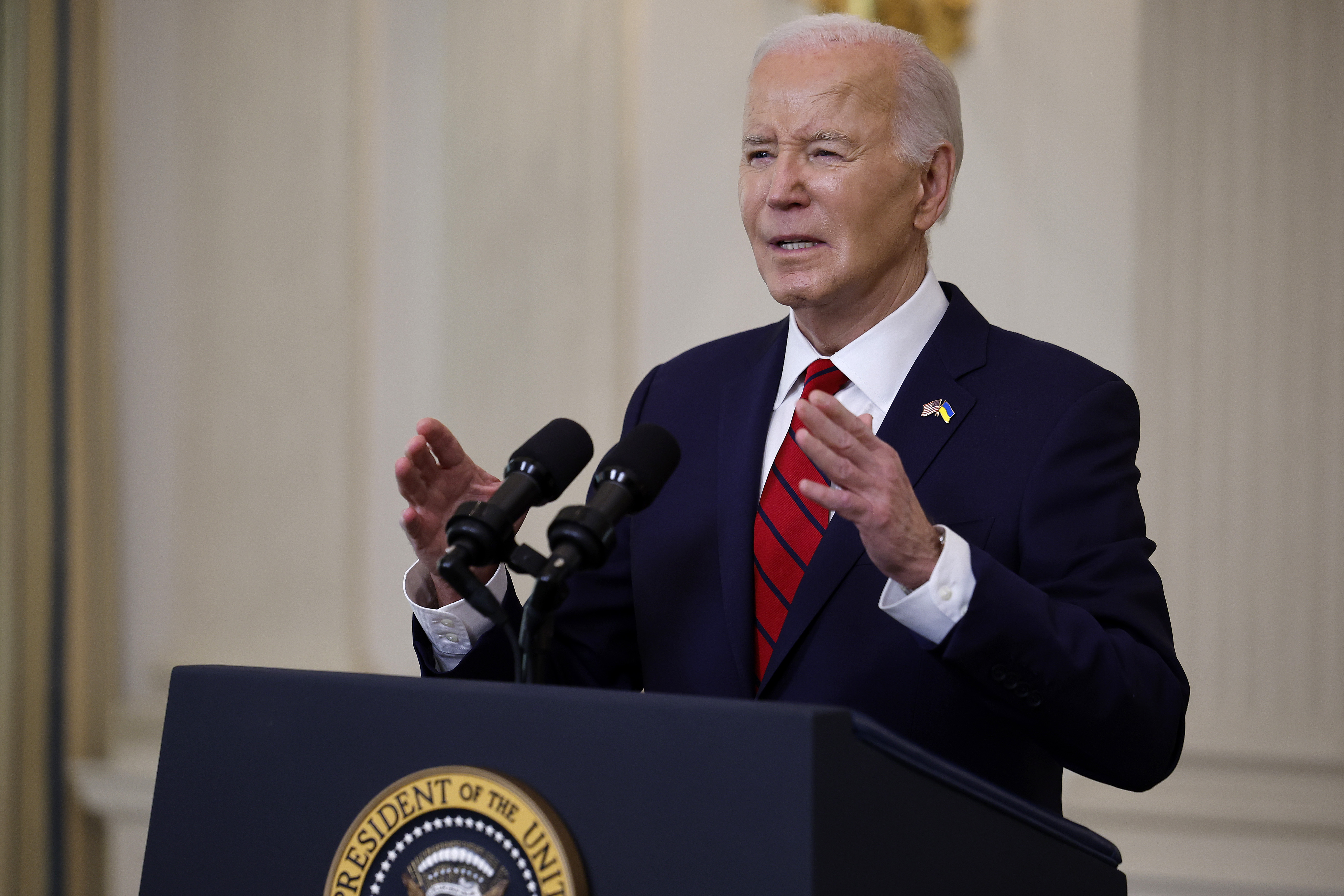Mitt Romney's claim that President Barack Obama "gave GM" to the United Auto Workers stood as one of the overstatements of the night Wednesday when Republican presidential candidates grappled with the economy in their latest debate.
A look at some of the claims in the debate and how they compare with the facts:
ROMNEY: President Barack Obama "gave GM to UAW, he gave Chrysler to Fiat."
THE FACTS: That's not what happened in the bailout.
A trust owned by the United Auto Workers received a 17.5 percent ownership stake in GM to help that trust pay for its retirees' health care. That stake has declined since then, after the company went public in November 2010. The trust now owns about 10 percent of General Motors. That's much smaller than the government's stake of about 30 percent, and it doesn't support the notion that the government "gave" the company to the union.
Moreover, the union did not get free rein in return for its share. It was barred from going on strike over wage issues during recent contract talks with GM and Chrysler, as a condition of the bailouts.
Nor did Obama give Chrysler to Fiat.
Politics
Politics from around the world.
The Italian automaker Fiat received an initial 20 percent stake in Chrysler as Chrysler emerged from bankruptcy in 2009 in exchange for only management expertise and technology. Since then, Fiat has paid $1.8 billion to boost its stake to 53.3 percent, including a $500 million payment to the U.S. Treasury to purchase the government's 6 percent share of the company.
Debating in Michigan, where the bailout was popular and credited with helping to save automakers, Republican candidates struggled at times to explain why they opposed the deal.
GM has an assembly plant in Arlington.
RICK PERRY: "Pull back all the regulations. It's the regulatory world that is killing America. ... It doesn't make any difference whether it's the EPA or whether it's the federal banking, the Dodd-Frank or Obamacare, that's what's killing America."
MICHELE BACHMANN: "Our biggest problem right now is our regulatory burden. The biggest regulatory problem we have is Obamacare and Dodd-Frank (financial regulations). I will repeal those bills."
NEWT GINGRICH: "If the Republican House next week would repeal Dodd-Frank and allow us to put pressure on the Senate to repeal Dodd-Frank, you'd see the housing market start to improve overnight."
THE FACTS: It has become an article of faith in the GOP field that regulations are a leading drag on jobs, but Labor Department data show that few companies where large layoffs occur say government regulation was the reason. Just two-tenths of 1 percent of layoffs since Obama took office have been due to government regulation, the data show.
Moreover, there is little evidence that the regulatory burden is any worse now than in the past or that it is costing significant numbers of jobs. Most economists believe there is a simpler explanation: Companies aren't hiring because there isn't enough consumer demand. And economists believe high levels of economic uncertainty are a leading complication for business, arising more from struggles over taxes and spending in Washington than from regulations -- an unwelcome quantity, for sure, but a known one.
The National Federation of Independent Business asks its small-business membership each month to name the single most important problem they're facing. Last month, the most common response was "poor sales," cited by 26 percent. Government regulation came in second, at 19 percent.
Bachmann has plenty of company in the GOP field in blaming the regulatory burden of Obama's health care law for economic ills. But the evidence so far is thin; most of the law's provisions don't take effect until 2014.
Indeed, the health care industry has been one of the few reliable sources of hiring during the recession and its aftermath. The industry has added 313,000 jobs in the past year.



